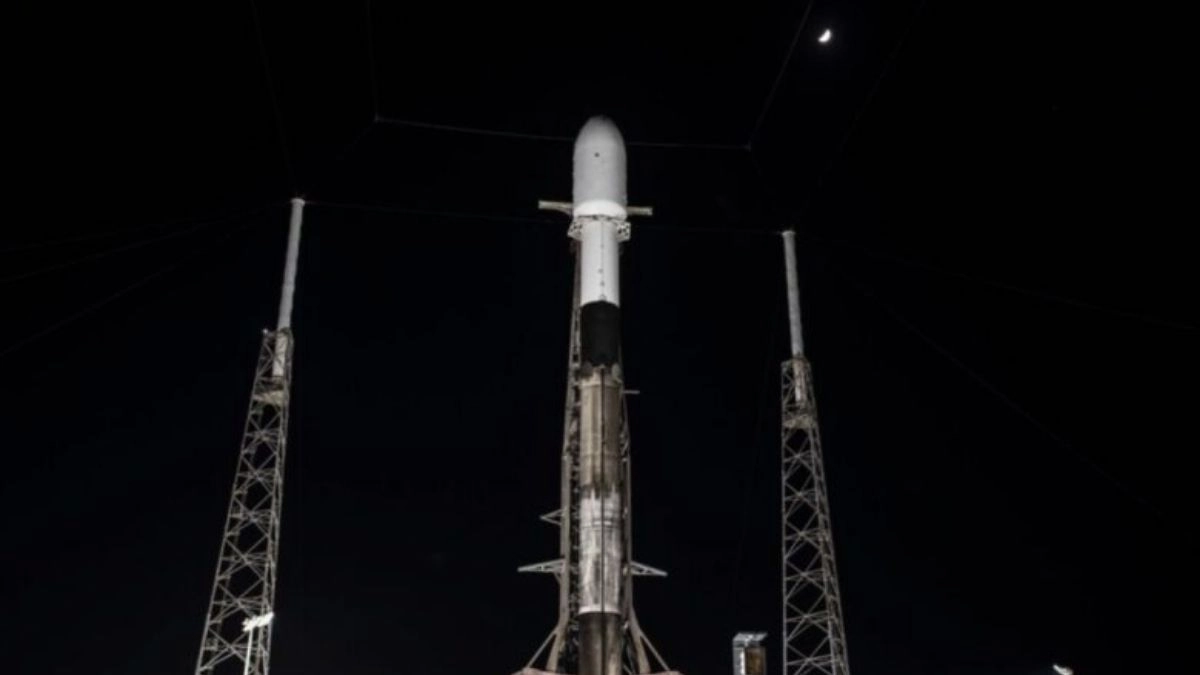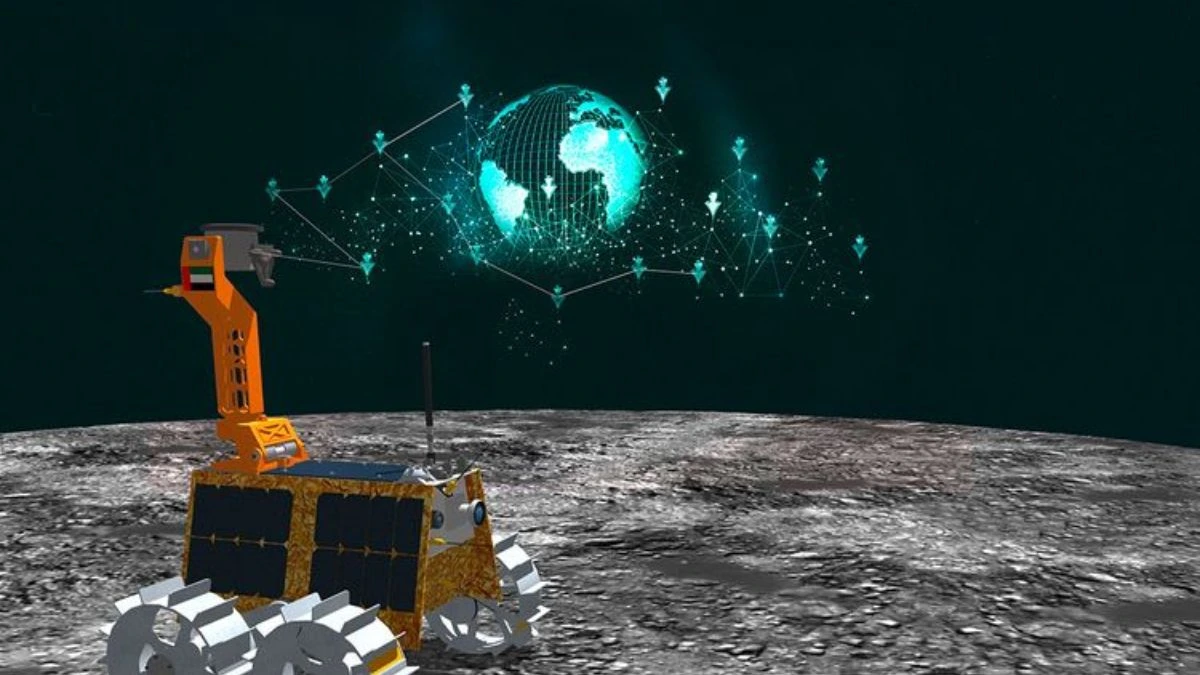News
Rashid Rover Successfully Enters Lunar Orbit

The Mohammed Bin Rashid Space Centre (MBRSC) in Dubai, United Arab Emirates, has achieved a significant milestone in space exploration by successfully inserting the Rashid Rover into lunar orbit. The Rashid Rover is the first Emirati rover to land on the moon’s surface, putting it one step closer to making history.
On March 21, at 5.24 a.m. UAE time, the iSpace lander, which carried the Rashid Rover to the moon, performed its first lunar orbit insertion maneuver as planned.
The maneuver was directed by the lander engineers, who guided the spacecraft in accordance with the mission operation plan. For several minutes, the lander’s main propulsion system was used to control the speed and direction of the spacecraft, resulting in a successful completion of the maneuver.
Rashid Rover Enters Lunar Orbit, Brings UAE Closer to Historic Moon Landing
The Rashid Rover’s entry into lunar orbit is an important step toward the mission’s upcoming milestones. The next phase of the mission involves conducting five remaining subsystem checks before the rover is ready to land on the surface of the moon.

The successful placement of the Rashid Rover in lunar orbit is a significant accomplishment for the UAE’s space program and a proud moment for the Mohammed Bin Rashid Space Centre. The mission demonstrates the UAE’s dedication to space exploration and technology advancement, and it paves the way for future scientific discoveries and space exploration missions.
The next few months will be crucial for the mission team as they continue to prepare the Rashid Rover for its historic moon landing.
All of the lunar orbital maneuvers have been completed successfully in preparation for the landing sequence, which is expected to be announced in late April 2023. More information on the exact timing and date of the landing will be released soon.
The Rashid Rover mission has completed two significant milestones, the Launch and Early Orbit Phase (LEOP) and the cruise phase, and is now preparing for the third milestone, the Arrival Phase (Entry, Descent, and Landing).
This is the most critical phase, as the lander must navigate its way to a predetermined landing spot on the moon’s surface based on its system’s calculations.
It has successfully completed the first two milestones, the Launch and Early Orbit Phase (LEOP) and the cruise phase, and is now approaching the third milestone, the Arrival Phase (Entry, Descent, and Landing), which will be the most difficult phase yet.
During this phase, the lander must make a precise landing on the lunar surface based on calculations made by its system in order to reach a specific landing spot on the moon.
After the landing, the rover will move on to the next phase, Deployment, Commissioning, and Drive-Off. Deployment, commissioning, and drive-off command sessions will begin during this phase. The rover will begin instrument commissioning and data collection after completing a post-landing check.
These milestones are critical for the Rashid Rover mission’s success because they represent critical steps toward achieving its scientific objectives.
The rover is expected to contribute significantly to our understanding of the moon and its resources, which could have significant implications for future space exploration and settlement.
Following the Deployment, Commissioning, and Drive-off phases, the Rashid Rover will enter the critical Nominal Surface Operations phase, which is the mission’s primary goal. The rover will conduct continuous research on the lunar surface and capture images for 10-12 days to gather critical information about the terrain.
After the completion of the Nominal Surface Operations phase, the rover will transition into a crucial period called the hibernation phase, which involves preparing for the lunar night. In this phase, the rover’s data is retrieved and extra measures are taken to avoid any missed information.
Related Topics
🔹Abu Dhabi Police Introduce New Restrictions On Heavy Vehicles During Ramadan
🔹Hatta Ramadan Championship To kick Off On 24th March
Restarting the rover after the lunar night is unlikely, but if successful, the mission will continue into the second lunar night and conclude with the decommissioning phase.
The UAE’s pioneering mission to study the moon’s surface is considered to be an important step toward the future exploration of other planets.
The mission is funded by the Telecommunications and Digital Government Regulatory Authority’s (TDRA) ICT Fund, which aims to support research and development in the UAE’s ICT sector, thereby enhancing the country’s technological capabilities.
Mohammed Bin Rashid Space Centre (Mbsrc)
The Mohammad Bin Rashid Space Centre (MBRSC) is a world-class scientific and technological hub aimed at establishing the UAE as a global leader in space services and exploration.
Starting with only five engineers in 2006, the Centre has grown into the “UAE National Space Programme” incubator. It constructs, develops, and operates Earth observation satellites such as DubaiSat-1 and DubaiSat-2, as well as KhalifaSat, which was completed entirely by Emiratis in 2018.
The MBRSC provides imaging services and relevant data to scientific communities and research institutions all over the world. The Centre is currently working on the MBZ-SAT satellite, which is set to launch at the end of 2023 and will make a significant contribution to high-resolution imaging from space.